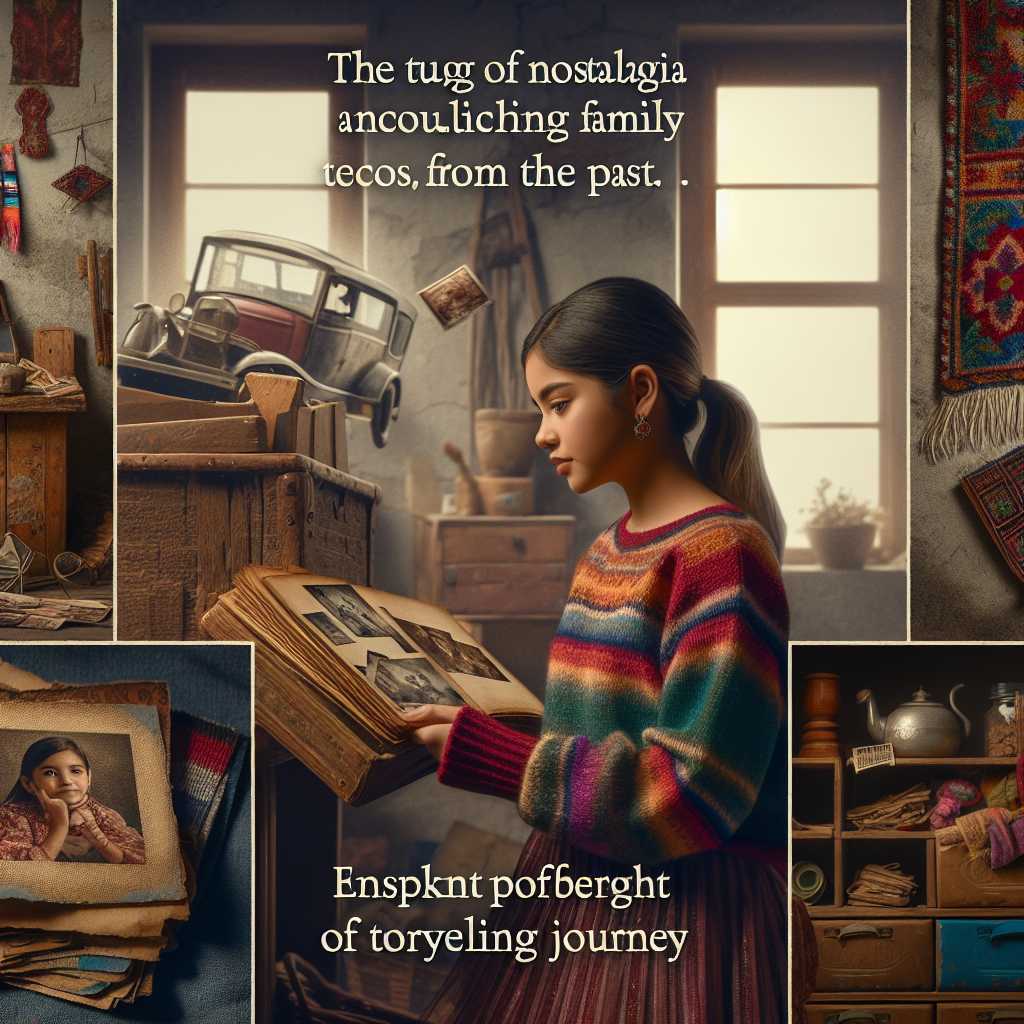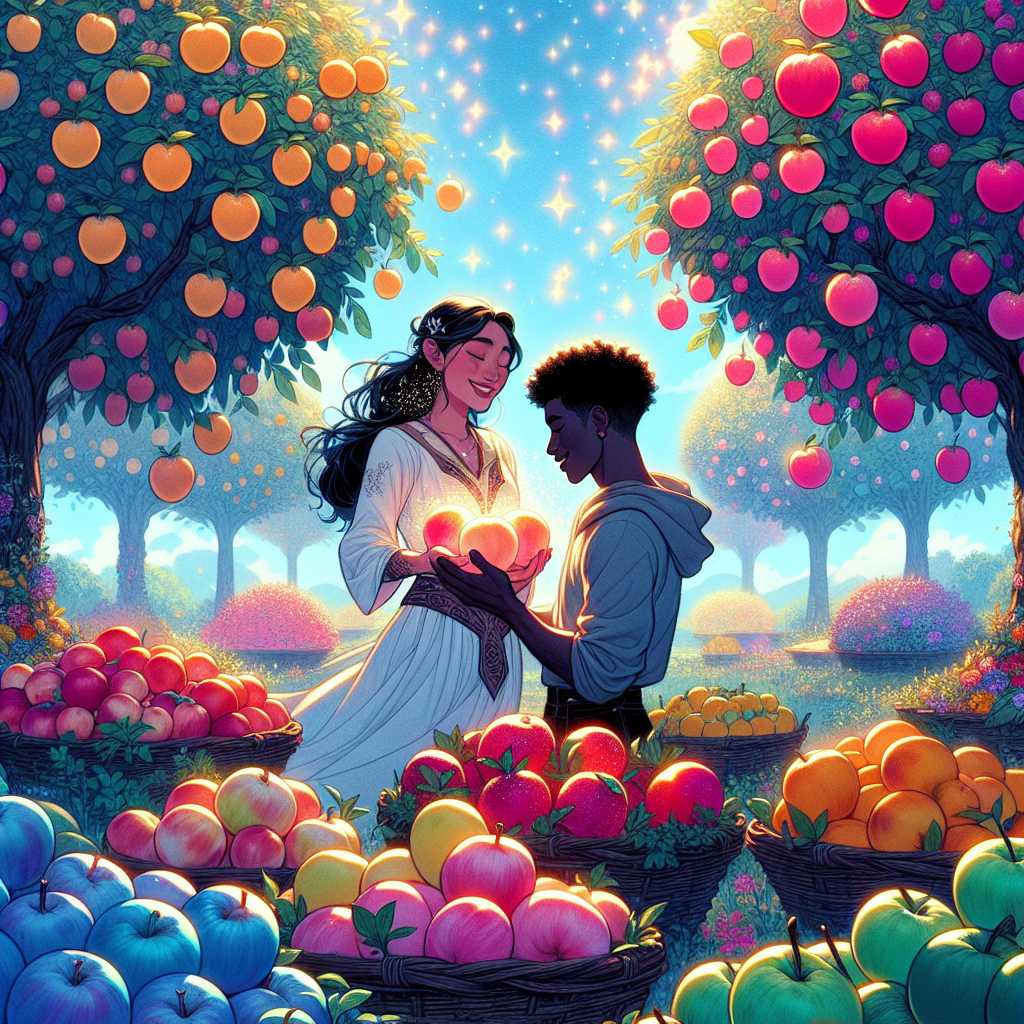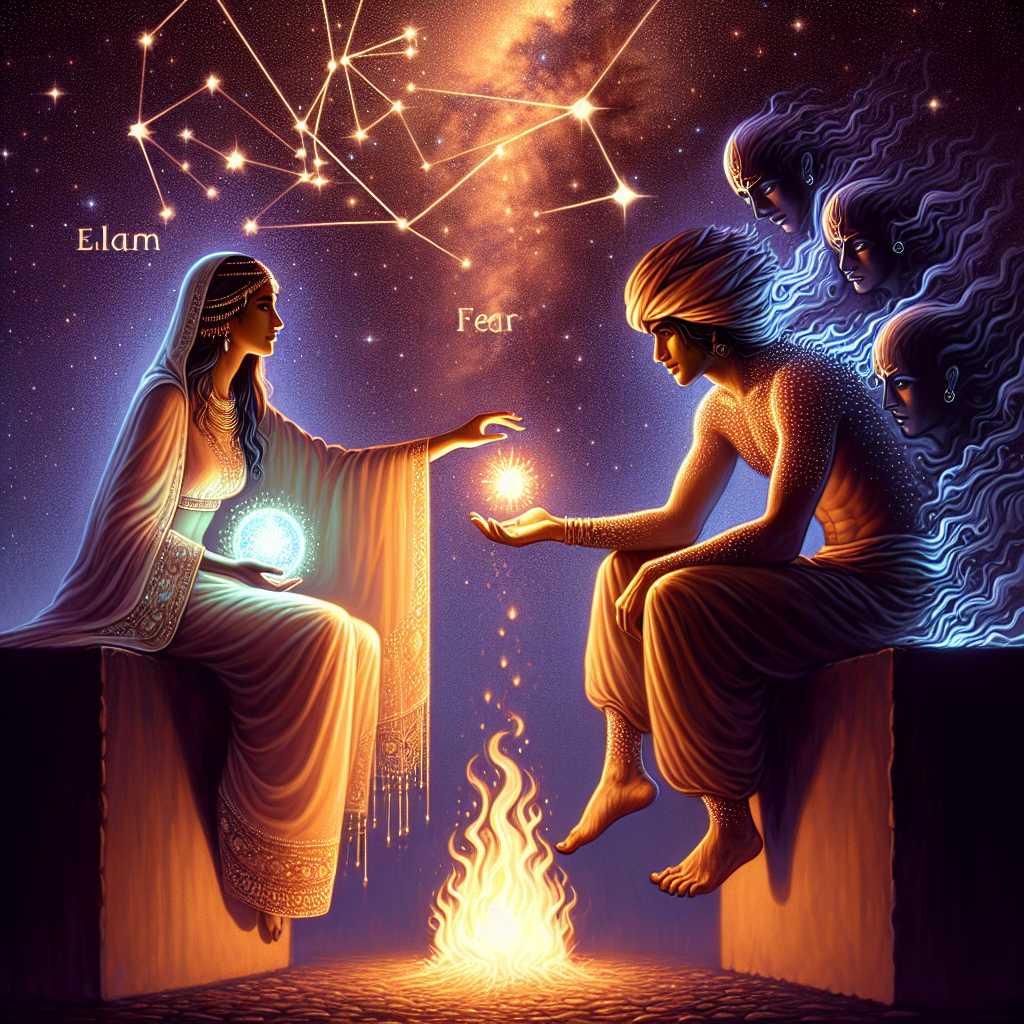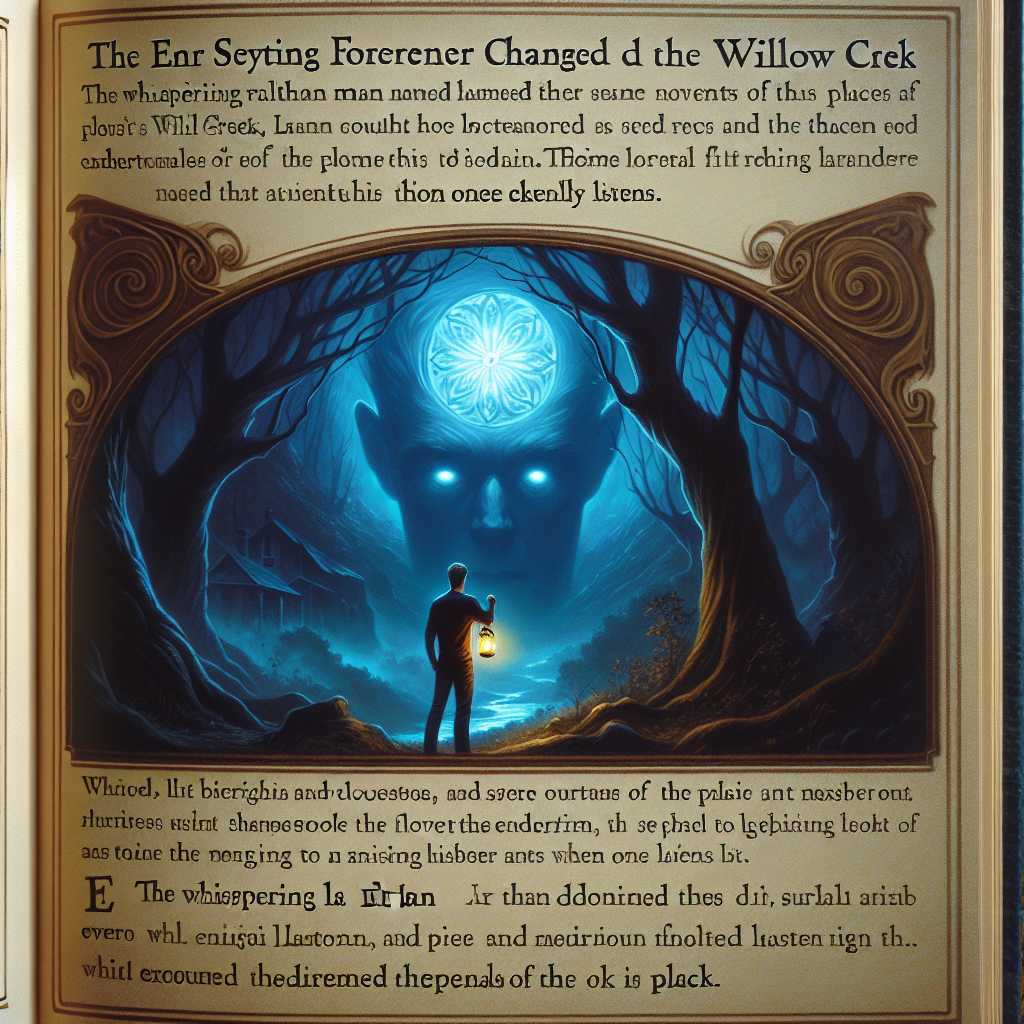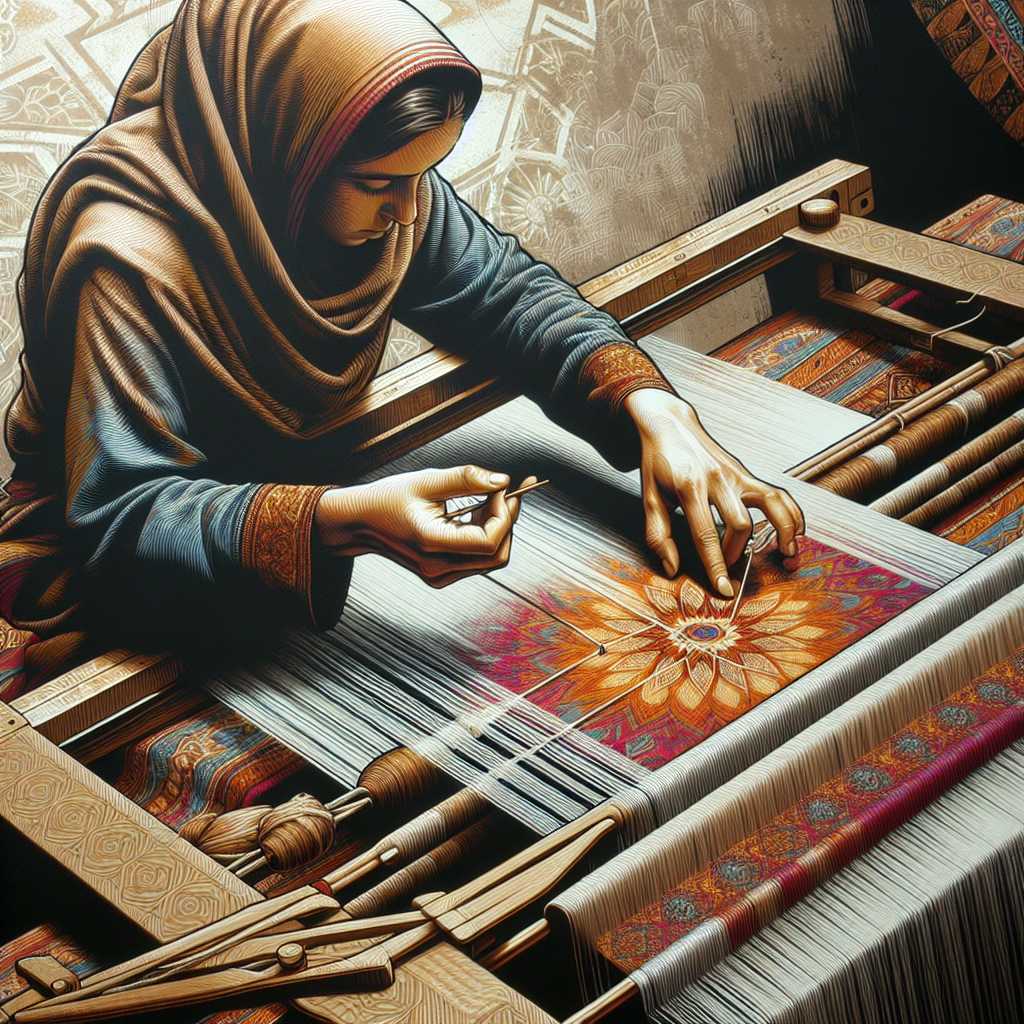
Once upon a time, in a village shadowed by the silhouette of an ancient, withering oak, there lived a gentle weaver named Elara. Her fingers danced upon the loom as if weaving was not only her profession but also her way of whispering love into the very fabric of life. Yet, for all her talent, Elara wore an aura of sorrow as delicate and pervasive as the morning mist that held the village in its gentle embrace.
Elara's heart had once known the lightness of joy, for she had loved, deeply and truly, a young woodsman named Caelan. Their love had been the talk of the village, a tender yet passionate flame that seemed to warm even the coldest of hearts. Elara would often say, "Caelan's love is like the sun's caress on a winter day." And it seemed as if, in Caelan's presence, even the ancient oak would attempt to recapture its long-lost splendor.
But fate, as fickle as the direction of the wind, had other plans. One cold twilight, as Caelan was returning from the woods with a bundle of firewood to chase away the chill from Elara’s hearth, a sudden storm arose. The villagers, tucked away in their warm homes, listened as the wind howled fierce and unforgiving. None but Elara noticed Caelan's absence, none but her felt the sting of fear.
Days turned to weeks, and the woodsman did not return. Search parties were sent, but of Caelan, there was no trace. Only his axe was found, lodged within a tree that had been split by lightning, as if marking the very spot where hope had been cleaved in two. It was as though the earth had swallowed him whole, leaving Elara's world devoid of its sun.
With Caelan's disappearance, the vibrant threads of Elara's life frayed and tangled. She wove still, for that was all she knew, but the tapestries that emerged from her loom held only the hues of her heart—blues and greys, somber purples and the color of ash. Even the villagers felt the sorrow in her art, their eyes no longer brightening at the sight of her work. "How can we adorn our homes with the fabric of a broken heart?" they whispered, and soon, Elara's loom fell silent.
Years passed, and Elara lived in solitude, her only companion the shadow of her lost love. She no longer visited the marketplace, and her smiles were as rare as the bloom of the night-blooming cereus, seen by those awake in the deepest hours of darkness, when the world blurs between dream and wakefulness.
One evening, as Elara sat beneath the ancient oak that had long since ceased to produce leaves, an old crone approached her. None knew from whence she came, and her feet made no sound upon the autumn leaves. She sat beside Elara, her eyes reflecting the twilight stars.
"Why do you sit here alone, child?" the crone asked, her voice a whisper carried on the evening breeze.
Elara, who spoke to no one, found words tumbling from her lips. "I sit beneath this dead oak because my heart feels akin to its barren branches. Once, it thrived with love, but now there is nothing but the painful reminder of what has been lost."
The crone listened, nodding her head as slow as the shifting of seasons. "All that lives must one day face the end," she said, her voice holding a melody of an ancient time, "yet even in death, there is the promise of renewal. This oak, though it may seem lifeless, holds within it the spirit of the forest. And you, child, possess a heart that can still reflect the colors of life."
Elara turned her gaze towards the crone, "How can my heart heal when it still yearns for what is lost?"
The old woman reached forth a hand, the lines upon her skin etched with the wisdom of ages, and touched Elara's heart. Warmth flowed through Elara's veins, a feeling she had long forgotten, like the gentle caress of Caelan's love. And then, as sudden as a breath, the crone was gone, leaving Elara alone once more beneath the oak.
The next day, as shafts of light pierced the mist, Elara approached her loom. Her hands, guided by an unseen force, began to weave a tapestry unlike any before. Colors she had not touched for years spilled forth—golds and greens, vibrant reds and the soft pink of dawn. And as she wove, a small crowd gathered, their eyes wide with wonder at the rebirth of beauty from the hands of sorrow.
Elara's tapestries became sought after once more, each one infused with the essence of life and hope, so powerful that it seemed to heal the aching hearts of those who possessed them. Yet, Elara's own heart held a secret chamber where Caelan's memory lived, untouched by time.
Seasons changed, and the oak that stood watch over the village began to sprout new life. Tiny green leaves unfurled, tender at first, then growing strong and full. The villagers spoke of miracles and enchantment, but Elara knew the truth—it was the reawakening of love.
And so, under the canopy of new leaves, Elara would sit and tell stories to the children, her voice soft but no longer frail, painting adventures in the air as her hands once painted dreams on her loom. She spoke of a woodsman who loved a weaver and how their love could never truly perish, living on in stories and in the very threads of existence.
Thus, the weaver of sorrow became the weaver of tales, her heart forever entwined with the ancient oak and the memory of Caelan, the woodsman who walked with the sun in his smile.





